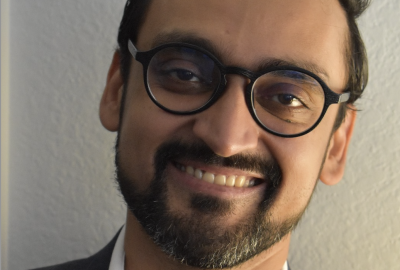
Name: Haider Fancy
Email: hsf244@nyu.edu
Program: International Education
Research Interests: Resilience and psychopathologies in children impacted by religiously motivated violent extremism.
Principal Advisor(s): Dana Burde
Research Description/Bio: Haider Fancy is a Ph.D. candidate studying the power of narratives found within culture and religion to shape people’s experiences of the world. He demonstrates how understanding local narratives is imperative for effective international research. His focus is on resilience in children impacted by large-scale terrorist violence. Using in-depth interviews with children and their caretakers and peers, he argues that resilience processes are unique to socio-cultural contexts. These children exist within a network of complimentary and conflicting narratives. They draw on these narratives to make sense of the world. It is the meaning-making of experiences based on narratives that determine whether children exhibit resilience and thrive in challenging situations. Researchers studying international contexts must therefore imbed themselves in local narratives and stories. Without this understanding, international education research runs the risk of shallow and ineffective analysis, and poor development programming.
His research has broad implications for the fields of resilience, international education, and psychology. He challenges assumptions about the validity of international resilience research, and psychological research which makes broad claims about human universals. As part of a research team studying university applicants in Pakistan, he showed that internationally developed metrics for concepts like tolerance and religiosity do not apply to all contexts. In fact, these internationally developed and validated metrics identify vulnerable populations under threat of violence as intolerant because of the safety strategies they employ.
Haider uses this perspective extensively in his development work and teaching. His efforts in international education development include work in public policy development, school development in the public and private sectors, and behavior and attitude change initiatives for some of the most conservative and challenging regions of Pakistan and Afghanistan. This involved in-depth analysis of local cultural perspectives, and constructing projects to convince communities to start, fund, and run schools for their girls for the first time. It has also included creating events with international donors, development organizations, and local actors to develop culturally specific education projects in places like Tanzania, Kenya, and Uganda. Meaningful partnerships and not token ‘inclusion’ initiatives are central to the act of good international development and research.
His teaching reflects this approach as well. He conducts his classrooms as a partnership with his students, across multiple disciplines and schools. He has taught a range of courses including “Global Education”, “Comparative Politics, Education, Conflict, and Peace”, for the International Education Department, “Resisting Dystopia” in the Media and Communications Department, and “Business and Society”, for the Social Impact track at the Stern School of Business. He runs several extracurricular activities at the Stern School of Business, including a widely regarded Debate series, and a social-impact entrepreneurship series culminating in proposals for business ventures with social good pitched to investors and development agencies for funding. At NYU, he has also acted as a teaching assistant for several other courses, an elected union steward and contract bargaining member, and the technical editor for the Journal of Education in Emergencies. His teaching record is marked by continual relationships with his students, and letters of commendation from the deans of the Steinhardt School of Culture, Education and Human Development, and the Stern School of Business.
